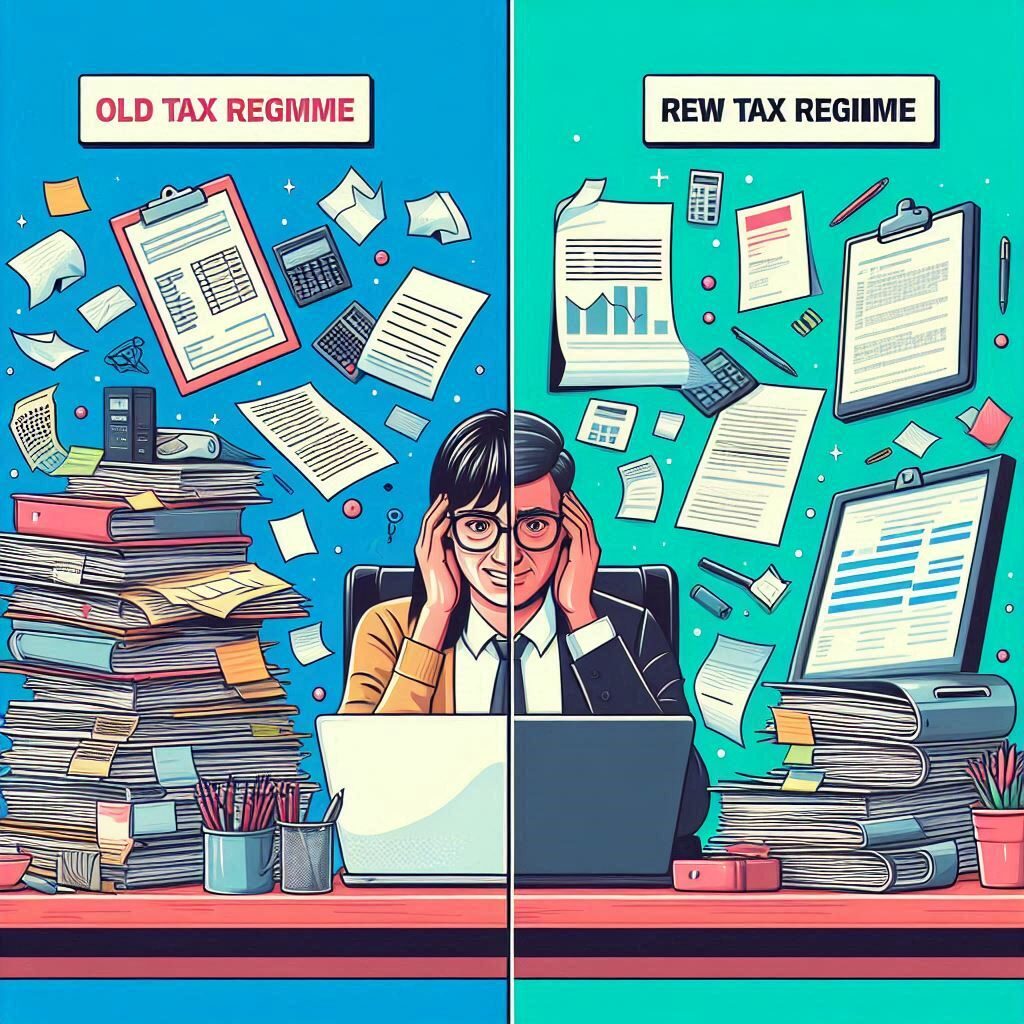
Old vs New Tax Regime:
The key Points of Income Tax Filling Options Explained Even Better at Bizdiscuss.com
Introduction
Navigating through the maze of tax regulations can be daunting, especially when deciding between the old and new tax regimes. With each having its distinct features and benefits, making an informed choice is crucial. This guide aims to break down the complexities and help you decide which tax regime aligns best with your financial situation and goals.
Understanding the Old Tax Regime
The old tax regime has been the traditional method of taxation for years. It offers various deductions and exemptions that taxpayers can utilize to reduce their taxable income. which you can discuss with us at bizdiscuss.com contact us instantly.
Historical Background
The old tax regime has been in place for decades, providing numerous tax-saving opportunities through deductions and exemptions under sections like 80C, 80D, and 24(b) of the Income Tax Act.
Key Features
- Section 80C Deductions: Investments in PPF, EPF, life insurance premiums, etc.
- Section 80D Deductions: Health insurance premiums
- Section 24(b): Interest on home loan
Common Deductions and Exemptions
Taxpayers can reduce their taxable income significantly by claiming various deductions. This regime is beneficial for those who have substantial investments and expenditures that qualify for these deductions.
Exploring the New Tax Regime
Introduced in the 2020 budget, the new tax regime aims to simplify the tax filing process by offering lower tax rates and removing most deductions and exemptions.
Introduction and Background
The new tax regime was designed to simplify taxation, offering lower tax rates while removing the need for intricate tax planning involving deductions.
Key Features
- Simplified Tax Structure: Fewer complications, lower rates
- No Deductions: Most of the common deductions are not available
Comparison with the Old Regime
While the new regime offers lower tax rates, it eliminates the deductions and exemptions that the old regime provides, which can be a significant factor for those with high eligible expenses.
Major Differences Between Old and New Tax Regimes
Rate Structures
- Old Regime: Higher rates but with deductions
- New Regime: Lower rates but without deductions
Deductions and Exemptions
- Old Regime: Includes numerous deductions
- New Regime: Minimal deductions available
Applicability and Conditions
- Old Regime: Suitable for those with significant eligible expenses
- New Regime: Better for those seeking simplicity and lower rates
Advantages of the Old Tax Regime
Detailed Deductions
Allows for numerous deductions, making it beneficial for those who can utilize these fully.
Flexibility
Offers flexibility in terms of investment choices for tax savings.
Suitability for Different Income Levels
Particularly advantageous for higher-income groups who can maximize deductions.
Disadvantages of the Old Tax Regime
Complexity
Requires detailed tax planning and documentation.
Higher Tax Rates
Higher rates compared to the new regime, if deductions are not maximized.
Documentation Requirements
Extensive paperwork to prove deductions and exemptions.
Advantages of the New Tax Regime
Simplicity
Much easier to understand and comply with.
Lower Tax Rates
Generally lower rates for most income levels.
Ease of Compliance
Reduced paperwork and fewer details to manage.
Disadvantages of the New Tax Regime
Lack of Deductions
No option to claim common deductions which could lead to higher taxable income.
Limited Flexibility
Less flexibility in terms of tax-saving investments.
Potential for Higher Taxes for Some
For individuals with significant eligible expenses, this regime might not be beneficial.
Case Studies: Comparing Scenarios
Low-Income Individuals
May benefit more from the new regime due to lower tax rates and simpler compliance.
Middle-Income Earners
Need to evaluate their eligible deductions before choosing the regime.
High-Income Professionals
Often better off with the old regime if they can maximize their deductions.
Choosing the Right Tax Regime: Factors to Consider
Income Level
Your total income will play a significant role in deciding the better regime.
Financial Goals
Align your choice with your short-term and long-term financial objectives.
Investment and Savings Habits
Consider how your investment habits impact your eligible deductions.
Tax Planning Strategies Under Both Regimes
Maximizing Benefits Under the Old Regime
Invest strategically in tax-saving instruments.
Making the Most of the New Regime
Opt for the new regime if you do not have substantial deductions and prefer simplicity.
Common Misconceptions About Both Regimes
Myths About Deductions
Clarify common myths about eligibility and benefits of deductions.
Misunderstandings About Rates
Understand the actual tax rates and how they apply to different income levels.
Expert Opinions and Recommendations
Financial Advisors’ Insights
Seek advice from financial experts based on your specific financial situation.
Common Trends and Preferences
Look at common choices among similar income groups for guidance.
Future of Taxation in India
Potential Changes and Reforms
Stay informed about possible changes in tax laws that may impact your decision.
Impact on Taxpayers
Understand how future reforms might affect your tax liabilities.
Conclusion
Choosing between the old and new tax regimes depends on your unique financial situation. While the old regime offers various deductions, the new regime provides simplicity and lower rates. Evaluate your income, expenses, and financial goals to make the most informed decision.
FAQs
What is the biggest difference between the old and new tax regimes?
The old regime offers numerous deductions and exemptions, whereas the new regime provides lower tax rates without most of these deductions.
Can I switch between the old and new tax regimes?
Yes, salaried individuals can choose between regimes every financial year, but once a choice is made, it cannot be changed mid-year.
Which tax regime is better for salaried individuals?
It depends on the individual’s eligible deductions and financial goals. Salaried individuals with significant eligible expenses might benefit more from the old regime.
How do tax-saving investments differ under both regimes?
The old regime incentivizes tax-saving investments through deductions, while the new regime does not provide these benefits, focusing instead on lower rates.
What should I consider before choosing a tax regime?
Consider your income level, eligible deductions, financial goals, and investment habits before making a decision.
I hope you are having a wonderful day! I have a small favor to ask. I’m aiming to educate people about tax and more and I can’t do it without your amazing support. Could you please share your feedback which will help me write better for the world on income tax and other topics.
Thank you so much for your kindness and support in advance!

